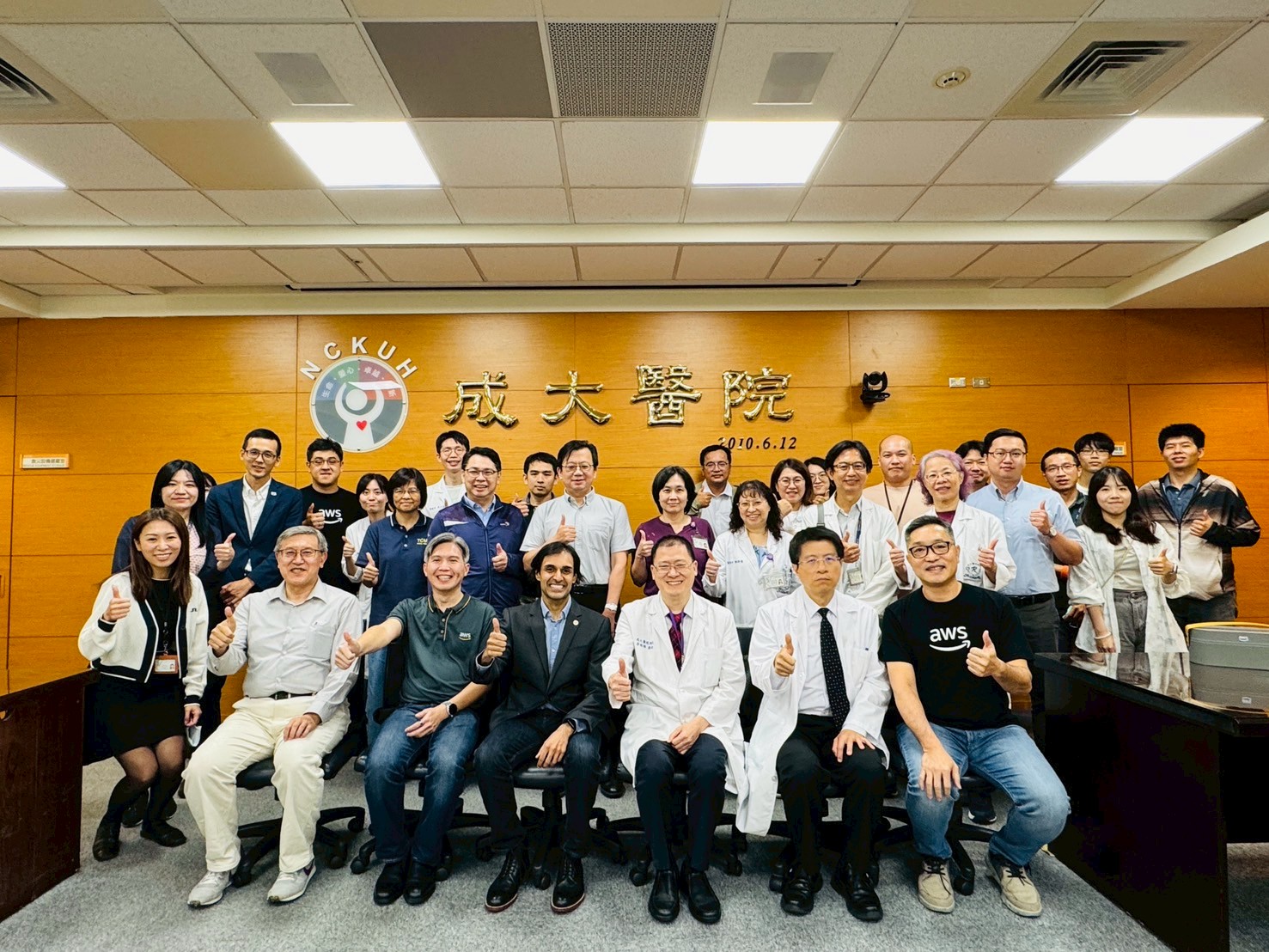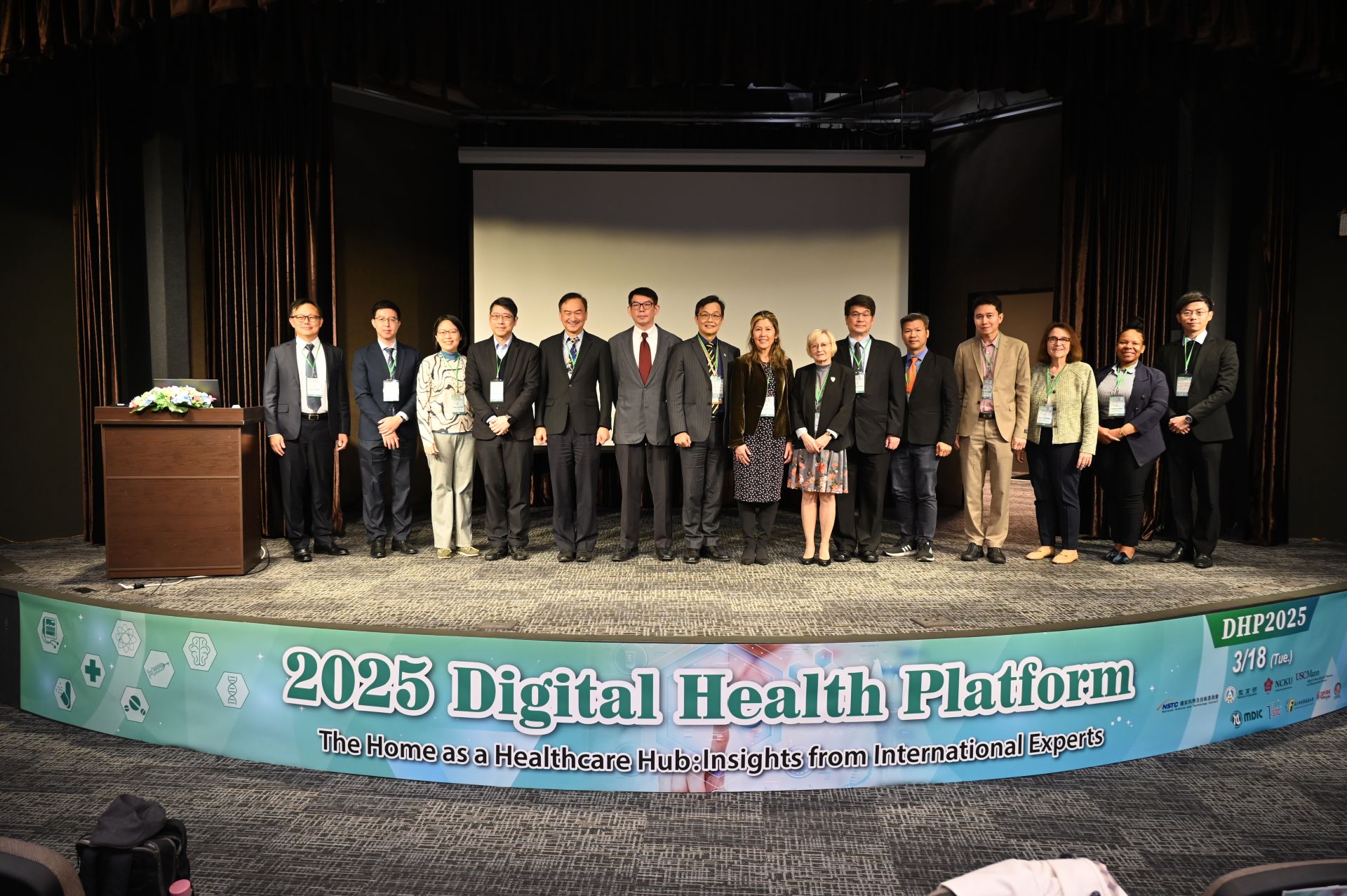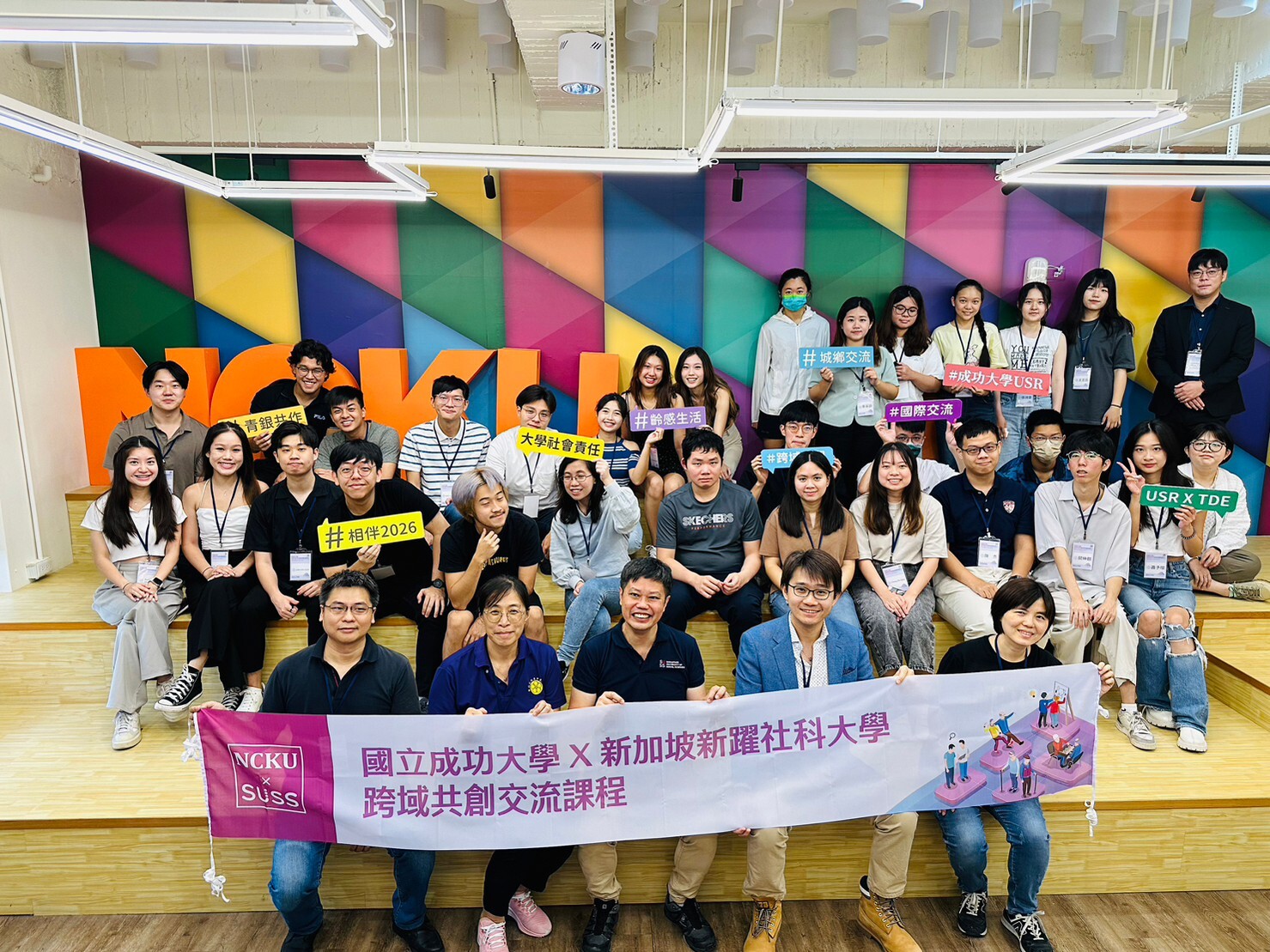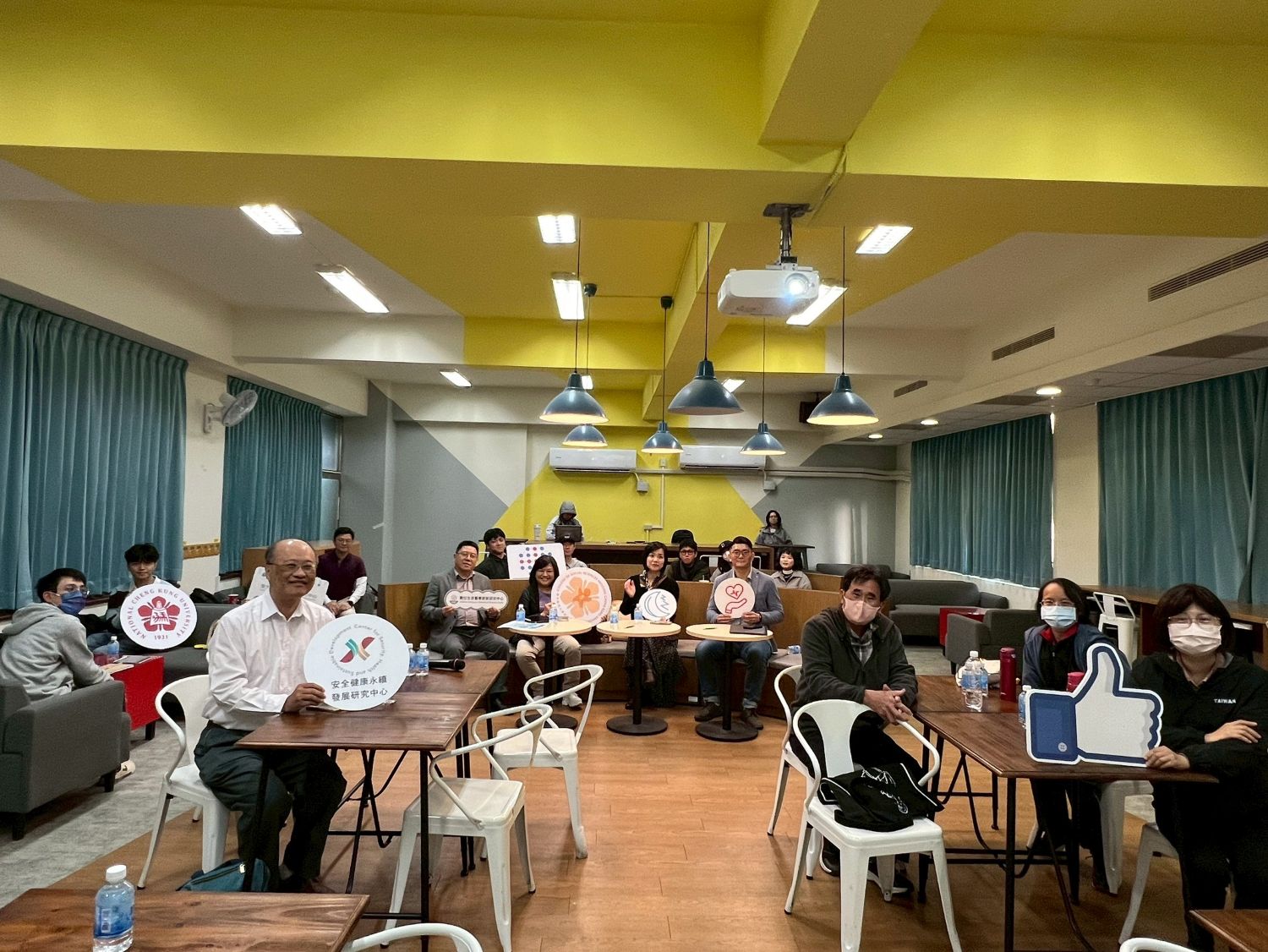SDG3
NCKU Shalun Health and Innovation Park Invites AWS to Share Visions for Smart Hospitals and Smart Warehousing
A special lecture organized by the NCKU Shalun Healthcare and Innovation Park Implementation Office was recently held at the National Cheng Kung University Hospital (NCKUH). The event invited technical experts from Amazon Web Services (AWS) specializing in the public sector and healthcare industries to share successful international cases. Together with the medical and administrative teams of NCKUH, participants explored how “Smart Hospital” and “Smart Logistics” are transforming the future of healthcare delivery.
Next Generation Hospital: From Digital Transformation to Clinical Empowerment
AWS presented the core concept of the Smart Hospital, emphasizing that through Artificial Intelligence (AI), the Internet of Things (IoT), and 5G technologies, hospitals can enhance patient care quality and optimize operational workflows. AWS highlighted that a smart hospital is not a single solution but rather a continuous evolutionary journey encompassing digital transformation, new models of care, data utilization, clinical empowerment, and automation.
The session also featured several international examples. The National University Health System (NUHS) in Singapore implemented Discovery AI and HoloMedicine applications—using secure medical data platforms, mixed-reality technology, and generative AI tools to help physicians reduce administrative workloads and improve work efficiency. Meanwhile, Cedars-Sinai Medical Center in the United States integrated the Alexa voice assistant to enable patient self-service and alleviate nursing workloads, demonstrating how technology can enhance patient experience and streamline hospital operations.
Smart Logistics and Warehousing: Strengthening Healthcare Supply Chain Resilience
Beyond clinical applications, AWS introduced its Warehouse Automation and Optimization (WAO) solution, which adapts Amazon’s own logistics center technologies to the healthcare supply chain. Through a digital twin platform for real-time simulation and operational monitoring, AWS reported that these innovations have achieved up to a 40% increase in labor productivity, 20% cost reduction, and 99.9% inventory accuracy.
A notable example is Singapore’s ALPS (Advanced Logistics for Pharmacies and Services), the national medical logistics center established in 2018. ALPS manages centralized warehousing and dispensing, improving inventory management and medication delivery efficiency while offering convenient pickup services — demonstrating the advantages of centralized and automated healthcare logistics.
NCKU Hospital Staff Gain Valuable Insights
This lecture provided NCKUH staff with a clearer understanding of the future direction of smart hospitals and how medical technology trends can genuinely enhance clinical efficiency and patient experience. Moving forward, smart hospital and smart logistics solutions are expected not only to reduce healthcare professionals’ workloads but also to deliver more convenient, efficient, and reassuring healthcare services to patients.
Next Generation Hospital: From Digital Transformation to Clinical Empowerment
AWS presented the core concept of the Smart Hospital, emphasizing that through Artificial Intelligence (AI), the Internet of Things (IoT), and 5G technologies, hospitals can enhance patient care quality and optimize operational workflows. AWS highlighted that a smart hospital is not a single solution but rather a continuous evolutionary journey encompassing digital transformation, new models of care, data utilization, clinical empowerment, and automation.
The session also featured several international examples. The National University Health System (NUHS) in Singapore implemented Discovery AI and HoloMedicine applications—using secure medical data platforms, mixed-reality technology, and generative AI tools to help physicians reduce administrative workloads and improve work efficiency. Meanwhile, Cedars-Sinai Medical Center in the United States integrated the Alexa voice assistant to enable patient self-service and alleviate nursing workloads, demonstrating how technology can enhance patient experience and streamline hospital operations.
Smart Logistics and Warehousing: Strengthening Healthcare Supply Chain Resilience
Beyond clinical applications, AWS introduced its Warehouse Automation and Optimization (WAO) solution, which adapts Amazon’s own logistics center technologies to the healthcare supply chain. Through a digital twin platform for real-time simulation and operational monitoring, AWS reported that these innovations have achieved up to a 40% increase in labor productivity, 20% cost reduction, and 99.9% inventory accuracy.
A notable example is Singapore’s ALPS (Advanced Logistics for Pharmacies and Services), the national medical logistics center established in 2018. ALPS manages centralized warehousing and dispensing, improving inventory management and medication delivery efficiency while offering convenient pickup services — demonstrating the advantages of centralized and automated healthcare logistics.
NCKU Hospital Staff Gain Valuable Insights
This lecture provided NCKUH staff with a clearer understanding of the future direction of smart hospitals and how medical technology trends can genuinely enhance clinical efficiency and patient experience. Moving forward, smart hospital and smart logistics solutions are expected not only to reduce healthcare professionals’ workloads but also to deliver more convenient, efficient, and reassuring healthcare services to patients.

NCKU Hospital Team Explores Innovative Applications of “Smart Hospital” and “Smart Logistics”

SDG3NCKU Hosts 2025 Digital Health Platform: The Home as a Healthcare Hub—International Expert Insights on Risks and Safety Guidance
View more
SDG3NCKU and SUSS's cross-national collaborative intensive summer course, exploring aging issues and innovative solutions.
View more



















